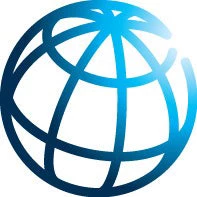Updated country income classifications for the World Bank’s 2018 fiscal year are available here.
The World Bank assigns the world's economies into four income groups — high, upper-middle, lower-middle, and low. We base this assignment on GNI per capita calculated using the Atlas method. The units for this measure and for the thresholds is current US Dollars.
At the Bank, these classifications are used to aggregate data for groups of similar countries. The income-category of a country is not one of the factors used that influence lending decisions.
Each year on July 1st, we update the classifications. They change for two reasons:
1. In each country, factors such as income growth, inflation, exchange rates, and population change, influence GNI per capita.
2. To keep the dollar thresholds which separate the classifications fixed in real terms, we adjust them for inflation.
The data for the first adjustment come from estimates of 2016 GNI per capita which are now available. This year, the thresholds have moved down slightly because of low price inflation and the strengthening of the US dollar. Click here for information about how the World Bank classifies countries.
Updated Thresholds
New thresholds are determined at the start of the Bank’s fiscal year in July and remain fixed for 12 months regardless of subsequent revisions to estimates. As of July 1 2017, the new thresholds for classification by income are:
| Threshold | GNI/Capita (current US$) |
|---|---|
| Low-income | |
| Lower-middle income | 1,006 - 3,955 |
| Upper-middle income | 3,956 - 12,235 |
| High-income | > 12,235 |
Changes in Classification
The following countries have new income groups:
| Country | Old group | New group |
|---|---|---|
| Angola | Upper-middle | Lower-middle |
| Croatia | High-income | Upper-middle |
| Georgia | Upper-middle | Lower-middle |
| Jordan | Upper-middle | Lower-middle |
| Nauru | High-income | Upper-middle |
| Palau | Upper-middle | High-income |
| Samoa | Lower-middle | Upper-middle |
| Tonga | Lower-middle | Upper-middle |
The country and lending groups page provides a complete list of economies classified by income, region, and lending status and links to previous years’ classifications. The classification tables include all World Bank members, plus all other economies with populations of more than 30,000. The term country, used interchangeably with economy, does not imply political independence but refers to any territory for which authorities report separate social or economic statistics.
Tables showing 2016 GNI, GNI per capita, GDP, GDP PPP, and Population data are also available as part of the World Bank's Open Data Catalog. Note that these are preliminary estimates and may be revised. For more information, please contact us at data@worldbank.org.


Join the Conversation